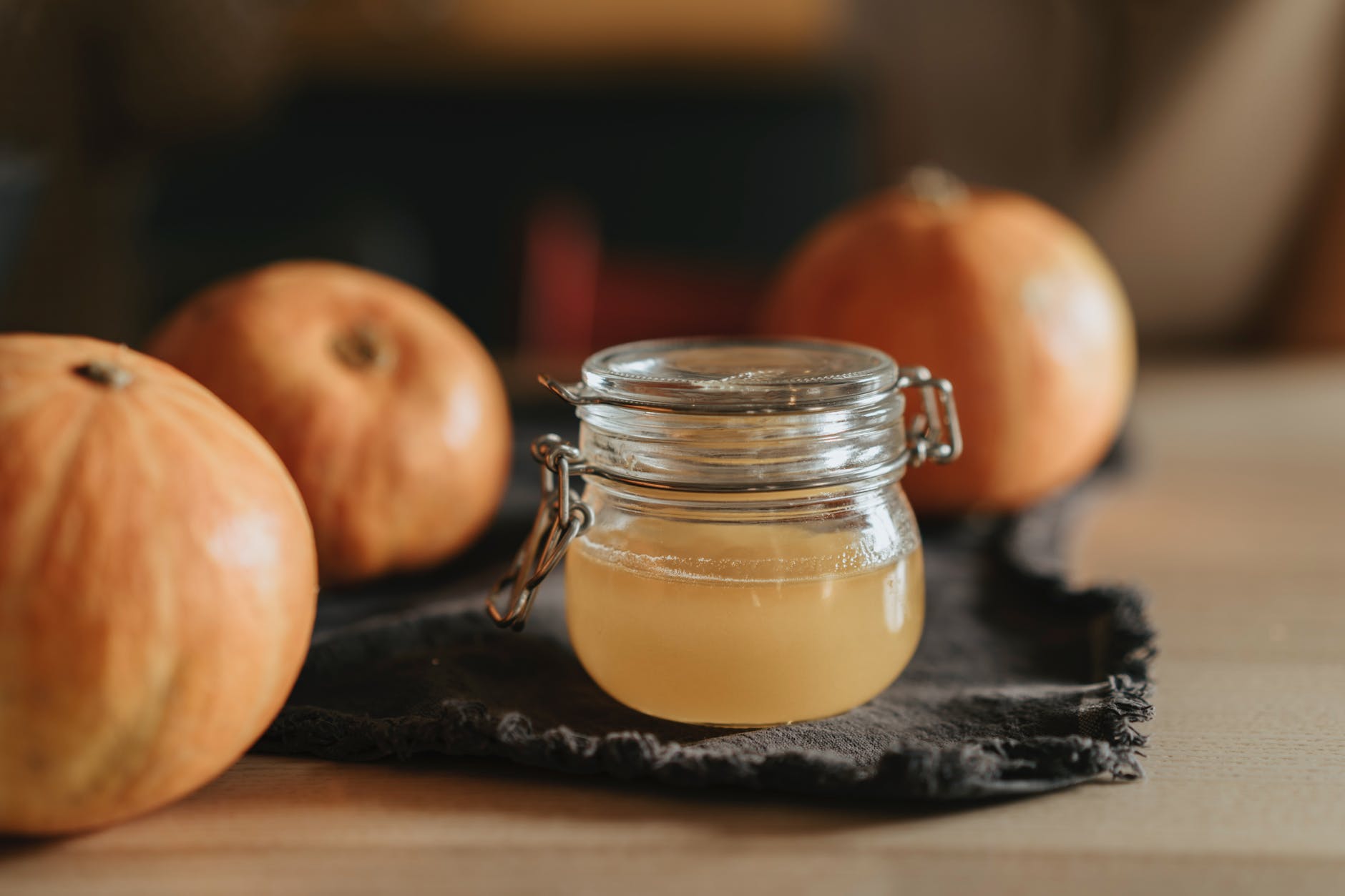
Digestive discomforts, such as gas and bloating, are more than just minor inconveniences. They can disrupt our daily routines, affect our mood, and lower our overall quality of life. While the modern world offers quick fixes in the form of over-the-counter medications, there’s a vast reservoir of ancient wisdom waiting to be tapped. This article delves deep into the heart of traditional herbs and spices, offering natural remedies that have been trusted for generations.
Why Opt for Natural Solutions?
In the age of instant gratification, it’s easy to reach for a pill. But why should one consider natural remedies? Here are compelling reasons:
Safety First
Natural remedies, derived from plants and herbs, have been consumed for centuries. They often come with fewer side effects compared to modern medications, making them a safer choice for many.
Holistic Healing
Rather than just treating the symptom, natural remedies aim to address the root cause of the problem. They offer a holistic approach, ensuring that the body, mind, and spirit are in harmony.
Economical and Accessible
Many of these remedies use ingredients that are commonly found in our kitchens. They’re not only cost-effective but also easily accessible, making them a practical choice for many households.
A Legacy of Cultural Wisdom
Opting for natural remedies means you’re tapping into the knowledge and experience of countless generations. These remedies carry stories, traditions, and a deep understanding of nature’s pharmacy.
By understanding the reasons behind the remedies, we can make informed choices that align with our health goals and values. The next sections will delve into specific solutions that have been trusted for generations.
10 Home Remedies for Stomach Bloating & Gas Relief
Nature, with its vast array of herbs and spices, offers potent remedies for digestive discomforts. Here are ten traditional solutions that have been trusted for generations:
1. Fennel Seeds (Saunf)
Origin: A staple in Mediterranean and Indian kitchens, fennel seeds are celebrated for their medicinal properties.
Benefits:
- Fennel seeds contain essential oils like anethole, which have anti-inflammatory and anti-spasmodic properties.
- They promote digestion, alleviate gas, and prevent bloating.
- Regular consumption can balance the digestive system and prevent chronic gas issues.
How to Use: Chew a teaspoon of fennel seeds post meals or prepare a soothing fennel tea.
2. Carom Seeds (Ajwain)
Origin: Native to India, these tiny seeds pack a punch when it comes to digestive health.
Benefits:
- Thymol, the active ingredient, stimulates the release of gastric juices, aiding digestion.
- They have anti-inflammatory properties, providing relief from gas and acidity.
- Regular consumption can strengthen the digestive system.
How to Use: Mix a teaspoon of carom seeds with a pinch of black salt for instant relief.
3. Ginger
Origin: A root native to Southeast Asia, ginger has been revered in various cultures.
Benefits:
- Contains gingerol, a bioactive compound that alleviates gastrointestinal irritation.
- Enhances saliva production, aiding in the digestion of starch.
- Its anti-inflammatory properties soothe the stomach lining.
How to Use: Consume a small piece of ginger before meals or prepare a warm ginger tea.
4. Asafoetida (Hing)
Origin: Derived from the resin of the Ferula plant, asafoetida is a potent remedy in Ayurveda.
Benefits:
- Its strong aroma and flavor come packed with benefits for the digestive system.
- Reduces flatulence, bloating, and other stomach disorders.
- Acts as an antispasmodic, preventing stomach spasms.
How to Use: A pinch in daily cooking or dissolved in warm water can work wonders.
5. Amla (Indian Gooseberry)
Origin: Native to India, amla is a powerhouse of nutrients.
Benefits:
- Extremely rich in Vitamin C, it strengthens the digestive system.
- Aids in the absorption of food, promoting healthier digestion.
- Its alkaline nature balances the stomach’s pH levels, reducing acidity and gas.
How to Use: Amla sharbat, like the one from Masala Monk, is a refreshing way to consume amla.
6. Anardana (Dried Pomegranate Seeds)
Origin: Used extensively in Indian cuisine, anardana is both tangy and beneficial.
Benefits:
- Rich in antioxidants, it aids in digestion and prevents bloating.
- Acts as a natural antacid, providing relief from acidity.
- Its mild laxative properties ensure a healthy gut.
How to Use: Anardana churan balls, like Anardana Atoms, are a delightful way to consume this ingredient.
7. Raw Mango Pulp (Kacha Aam)
Origin: Mango, the king of fruits, is not just delicious but also packed with health benefits.
Benefits:
- Raw mango pulp is alkaline, helping maintain the stomach’s pH levels.
- It prevents excessive acid production, reducing gas and bloating.
- Contains vitamins and minerals that boost digestive health.
How to Use: Kacha Aam Bombs are a tangy treat, combining the benefits of raw mango with traditional spices.
8. Peppermint
Origin: Native to Europe and Asia, peppermint has been used for its medicinal properties for centuries.
Benefits:
- The menthol in peppermint soothes the stomach lining, reducing gas and bloating.
- It also helps in relieving symptoms of irritable bowel syndrome.
- Acts as a muscle relaxant, preventing stomach spasms.
How to Use: Drink peppermint tea or add fresh leaves to salads.
9. Chamomile
Origin: Native to Western Europe, chamomile has been used for its calming properties.
Benefits:
- Chamomile relaxes the muscles of the intestines, easing the passage of gas.
- It has anti-inflammatory properties that soothe the stomach lining.
- Acts as a mild sedative, promoting better sleep.
How to Use: Drink chamomile tea, especially before bedtime.
10. Cardamom (Elaichi)
Origin: Native to India, cardamom is known as the “queen of spices.”
Benefits:
- Cardamom stimulates the release of gastric juices, aiding digestion.
- It has anti-inflammatory properties that soothe the stomach.
- Acts as a natural carminative, preventing the formation of gas.
How to Use: Chew a cardamom pod post meals or add its powder to desserts.
These natural remedies, steeped in tradition and backed by generations of use, offer a holistic approach to digestive health. In the next sections, we’ll delve into precautions and conclude with a summary of our findings.
Indian Remedies, Churans and other Digestive Concoctions
Churans have been a staple in Indian households, offering a natural solution to digestive woes. Traditionally in powder form, today’s churans come in playful shapes like “atoms”, making them a delightful treat after meals. The beauty of churans lies in their versatility. With a myriad of herbs and spices at your disposal, you can experiment, mix, and match to create your own unique blend. It’s a journey of discovery, finding out which combinations work best for your palate and your stomach.
However, if the idea of experimenting feels daunting, or you’re unsure where to start, we at Masala Monk have done the homework for you. Our range of churans, perfected over time, captures the essence of traditional recipes while adding a modern twist. So, whether you’re in the mood to play with ingredients or simply want a trusted remedy, there’s something for everyone.
Guava Atoms
Ingredients: Guava pulp, Amchur (dried mango powder), Kali mirch (black pepper), Kala namak (rock salt), Jeera (cumin seeds), Saunf (fennel seeds), Elaichi (cardamom powder), Sugar, Lemon juice.
Benefits:
- Guava is rich in dietary fiber and vitamin C, promoting healthy digestion.
- The combination of spices like cumin, fennel, and cardamom stimulates digestive enzymes, aiding in the breakdown of food.
- Black pepper and rock salt act as catalysts, enhancing the overall digestive process.
Anardana Atoms
Ingredients: Anardana (dried pomegranate seeds), Amchur, Kali mirch, Kala namak, Jeera, Saunf, Elaichi, Sugar, Lemon juice.
Benefits:
- Anardana is rich in antioxidants, aiding digestion and preventing bloating.
- The synergistic effect of spices like cumin, fennel, and cardamom provides relief from gas and acidity.
- Amchur, with its tangy flavor, stimulates the digestive process, ensuring efficient nutrient absorption.
Kacha Aam Bombs
Ingredients: Raw mango pulp, Amchur, Kali mirch, Kala namak, Jeera, Saunf, Elaichi, Rock sugar.
Benefits:
- Raw mango pulp, being alkaline, helps maintain stomach pH levels, preventing excessive acid production.
- The blend of spices, especially black pepper and cardamom, soothes the stomach lining, offering relief from discomfort.
- Rock sugar provides a balanced sweetness, making the consumption experience delightful while aiding digestion.
Check out Kacha Aam Bombs here.
Amla Sharbat
Ingredients: Amla (Indian gooseberry) pulp, Sugar, Lemon juice, Rock salt, Black pepper, Roasted cumin powder.
Benefits:
- Amla, packed with Vitamin C, strengthens the digestive system and boosts immunity.
- The combination of rock salt, black pepper, and roasted cumin enhances digestion, ensuring a smooth flow of nutrients in the body.
- Lemon juice adds a tangy flavor and aids in breaking down food particles, ensuring efficient digestion.
Learn more about Amla Sharbat here.
While these products offer a convenient way to enjoy the benefits of traditional churans, they also serve as an inspiration. Feel free to play around with ingredients and create your own concoctions. However, if you’re looking for a perfect blend that’s been tried and tested, Masala Monk is your go-to destination.
Precautions and Warnings
While the allure of natural remedies is undeniable, it’s essential to approach them with a sense of caution:
1. Individual Reactions:
Everyone’s body is unique. What works wonders for one person might not have the same effect on another. Always start with small doses to gauge your body’s reaction.
2. Allergies:
Some individuals might be allergic to specific herbs or spices. If you notice any allergic reactions like itching, swelling, or rashes, discontinue use immediately.
3. Pregnancy and Nursing:
Pregnant or nursing mothers should exercise caution. Always consult with a healthcare professional before trying any new remedy.
4. Interactions with Medications:
Natural remedies can interact with medications, either enhancing or diminishing their effects. If you’re on medication, discuss this with your doctor before incorporating any of these remedies into your routine.
Conclusion
Digestive discomforts, while common, can be debilitating. However, nature, with its vast array of herbs and spices, offers potent remedies that have been trusted for generations. By understanding and incorporating these remedies, we can navigate digestive discomforts with ease and grace. Remember, while these remedies can offer relief, it’s essential to listen to your body and consult with a healthcare professional for persistent or severe symptoms.
Frequently Asked Questions (FAQs)
1. What are the best natural remedies for gas relief?
Some of the top remedies include fennel seeds, carom seeds, ginger, and asafoetida. You can explore the full list in our 10 Time-Tested Solutions for Gas Relief section.
2. How does ginger help with gas?
Ginger contains gingerol, which alleviates gastrointestinal irritation and enhances saliva production, aiding in digestion. You can learn more about ginger’s benefits in our article.
3. Are these remedies safe for pregnant women?
While many natural remedies are safe, pregnant women should always consult with a healthcare professional before trying any new remedy.
4. Can I combine multiple remedies for better results?
Yes, many remedies can be combined for enhanced effects, like ginger tea with cardamom. However, always start with small amounts when combining.
5. How often can I consume these natural remedies?
Most remedies can be consumed daily, but it’s essential to listen to your body and adjust accordingly.
6. Are there any side effects to these remedies?
While natural remedies are generally safe, overconsumption or allergies can lead to side effects. Always be observant of any changes.
7. What is the role of Ayurveda in these remedies?
Ayurveda, an ancient Indian system of medicine, has championed many of these remedies for centuries, emphasizing their holistic healing properties.
8. How does amla help in digestion?
Amla, or Indian gooseberry, is alkaline in nature, balances stomach pH levels, and aids in food absorption. You can also explore the benefits of amla through products like Masala Monk’s Amla Sharbat.
9. Can children consume these remedies?
Yes, but in smaller quantities. Always consult with a pediatrician first.
10. Do these remedies also help with bloating?
Absolutely! Many of these remedies, like fennel seeds and carom seeds, are effective against both gas and bloating.
11. How does peppermint aid in gas relief?
Peppermint contains menthol, which soothes the stomach lining and reduces gas.
12. Are there any remedies specifically for nighttime gas relief?
Chamomile tea, consumed before bedtime, can be particularly effective for nighttime relief.
13. Can I find these remedies at local grocery stores?
Most of these remedies, like fennel seeds, ginger, and cardamom, are commonly found in local grocery stores or health food shops.
14. How do Anardana churan balls help with digestion?
Anardana, or dried pomegranate seeds, act as a natural antacid and have mild laxative properties. Products like Anardana Atoms offer a delightful way to consume this ingredient.
15. Is it safe to consume these remedies with medications?
Some natural remedies can interact with medications. It’s essential to discuss with your doctor before incorporating any of these remedies if you’re on medication.
16. How do raw mango pulp remedies work?
Raw mango pulp is alkaline and helps maintain stomach pH levels, preventing excessive acid production. Products like Kacha Aam Bombs offer a tangy treat that combines the benefits of raw mango with traditional spices.
17. Are there any remedies specifically for acid reflux?
Many of these remedies, like amla and raw mango pulp, are effective against acid reflux due to their alkaline nature.
18. How long does it take to see results?
While many of these remedies offer instant relief, consistent use over a period might be necessary for chronic issues.
19. Can I make these remedies at home?
Absolutely! Many of these remedies, like ginger tea or fennel water, can be easily prepared at home with common ingredients.
20. Where can I find more information about these remedies?
This article provides a comprehensive guide, but for more in-depth information, consider consulting Ayurvedic texts or professionals in the field.
Blog Tags:
Natural Remedies, Digestive Health, Ayurveda, Herbs and Spices, Gas Relief, Traditional Healing, Holistic Health, Stomach Comfort, Dietary Solutions, Ancient Wisdom.













